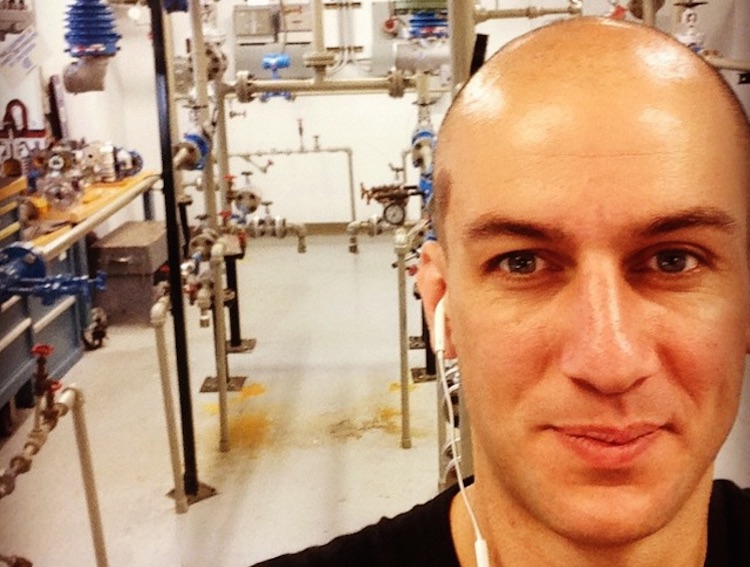Ari Meisel is an entrepreneur who’s overcome setbacks that might permanently halt some folks: in 2006, Chrohn’s disease derailed his booming real estate career, keeping him from leading a normal life. Knowing he had a thriving business to run, he embarked on a journey to beat this seemingly uncontrollable disease, and is now living symptom-free.
He created Less Doing, More Living, Less Doing Virtual Assistants, and Less Doing BPO, all a result of his journey back to healthy regular life.
How did you first get started working with virtual assistants in your own business(es)?
I’ve been using virtual assistants for a looooong time. I’ve watched, first-hand, the industry go from borderline incompetent to astonishingly efficient in less than twenty years.
At the beginning, I was using virtual assistants to do very, very simple tasks—answer prospect emails, post a blog to WordPress, upload the audio file for my podcast.
Now I use virtual assistants to do everything—pay our bills, orchestrate our Facebook marketing, write our blog posts, handle our hiring process, build our website, write our emails, handle our scheduling, etc.
What sets the Less Doing system apart from other methods of improving productivity?
Unlike other methods of productivity improvement, we don’t rely on high-level, philosophical B.S.—we give people a real, practical set of steps for self-betterment.
The Less Doing system is built on three, distinct pillars: Optimize, Automate, Outsource.
We start by identifying the processes in your life that are slowing you down, or holding you back. The BIG sources of stress and overwhelm in your life. With problem areas identified we then…
- Look to OPTIMIZE. Where could we be doing something better? Where are the inefficiencies? How can we reshape our behavior (mental or physical) to optimize a given process? This is the easiest of the three pillars, which is why it comes first.
- Look to AUTOMATE. Having refined a process down to its most efficient and easily replicable form, is there a way to now automate it? Can we find a way to use technology to produce low-cost automatic results, with complete consistency? We only try to automate after we’ve optimized a process as much as possible.
- Look to OUTSOURCE. Ideally, we only want to optimize and automate, but sometimes the necessary technology simply isn’t there. This is where outsourcing comes in. Outsourcing should always be the final step in the process, and it is exclusively reserved for those tasks we have fully-optimized, but that cannot be automated.
Remember—if your time could be better used elsewhere, optimize, automate, and, if need be, outsource.
Why do you think more people aren’t yet utilizing virtual assistants to help them with work (and life) tasks?
The reality is, people are scared and have always been scared of the unknown. Although Virtual Assistants have been around for almost 20 years, they’re still not nearly as prolific as the in-office assistant and because of that, there’s a strange stigma associated with them.
Some of that stigma is deserved—that first generation of virtual assistants (late 90s) wasn’t great. Most virtual assistants were overseas, and limited by both the technology of the time-period, and their ability to speak English as a second language.
Those problems are long gone.
Today, your typical virtual assistant can speak English fluently, and in premium virtual assistant services—like LDVA—the VAs are actually native English speakers.
And the technology?—it’s jaw-dropping.
If FedEx is ringing the doorbell at your house in Malibu, we can instantly have one of our VAs in New York remotely answer the intercom, identify the delivery-guy using the security camera, and tell them to leave the package.
In your consulting work, what are some common setbacks you find that people are encountering?
On the business-side, 80% of the setbacks or frustrations we deal with are communication related.
On the personal-side, it’s often overwhelm fueled by a severe case of “there are only so many hours in the day, how can I get this all done?!”
One of the hallmark rules of Less Doing is this: 90-95% of your day could be accomplished by anyone with even remote-levels of competency. Grocery shopping, dry-cleaning, the post office, listing something on Craigslist, buying a gift for your sister-in-law’s baby shower…this list of things someone else can do is almost endless.
Spend your day on the 5-10% of tasks only you can perform. Do THAT and watch your stress plummet, and your schedule open-up for friends, family, and recreation.
What are some things you do to be more productive in your life every day?
A few-things in particular:
- Wake-up at 5 AM
- Quick, intense, exercise
- Take advantage of technology
- Employ the help of other people, the Less Doing VAs in particular







